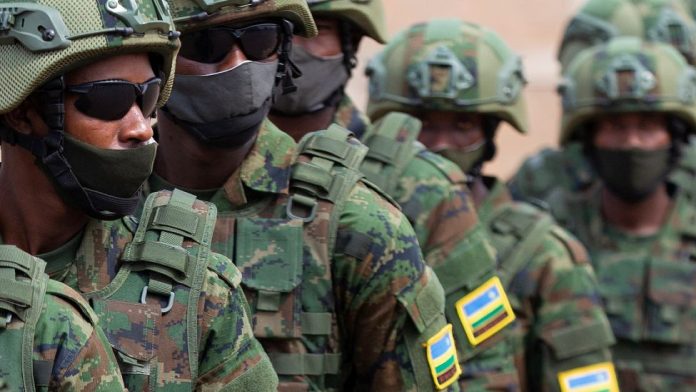Soldiers and Command Rotation:
A detachment of 2000 Rwandan Defence Force (RDF) soldiers has arrived in Mozambique to relieve a previous peacekeeping detachment. The peacekeeping mission is notably independent of the Southern African Development Community (SADC) led mission, and is marked by good bilateral relations between Rwanda and Mozambique. The rotation comes alongside a change of command–in this case, Major-General Alex Kagame will be taking charge in the stead of Major-General Eugene Nkubito. It is noted that ahead of the change of command, the Rwandan peacekeeping force was afforded a visit by President Filipe Nyusi, who applauded the mission’s ability to fight terrorism in the Cabo Delgado.
The force was deployed in July 2021, when insurgents with connections to Tanzanian fundamentalists and the Islamic State (IS) had taken over the northern Palma district, and have had significant success in driving back conflict, and allowing locals who were forced to flee, to return to their homes.
The Situation in Cabo Delgado:
The situation in Cabo Delgado is undeniably complicated. Attacks have solely taken place in the north of the country, and have not penetrated the southern heartlands of Mozambique. Notably, this is the location in which TotalEnergies, a French company, have planned to drill for liquid natural gas (LNG). Some of the world’s largest LNG reserves have been discovered off the coast of Mozambique, and it has made for perhaps Africa’s largest industrial project. This has however come at the cost of the displacement of the local coastal population. This displacement is what has ultimately caused a rise in acts of political violence in the region. Granted, the insurgency group is now widely accepted to be an Islamic fundamentalist group, however, it undeniably began as a group of disenfranchised young men who were forced to relocate and lost their primary source of income–which in this case was largely fishing or artisanal mining. Following cross-pollination with Tanzanian fundamentalists, the group has taken a more discernibly fanatical turn, however it has been noted by researchers that the leadership of the group trends towards Tanzanians who have been able to travel through Mozambique’s porous northern border.
This begins to strike at the heart of the issue. Cabo Delgado is a long neglected region of Mozambique, in which development is considerably lower. This is applicable in all realms, from education, to healthcare, and everything in between–in fact, as a result of a lack of schools in the region, many boys are sent to Tanzanian madrasas for education before returning home. This perhaps explains the large influence of Tanzanian fundamentalists on the conflict.
Foreign interests in Mozambique:
The intervention in Mozambique was funded by the EU, via the European Peace Facility. It is reported by Le Monde that the Rwandan military benefited from this support to the sum of €20m. Given the interests of TotalEnergies in the region, it begs the question, did France encourage the funding of Rwandan peacekeeping to cement its own LNG interests in Mozambique? While it is naturally difficult to confirm, an EU memo from 2022, which comments on the Rwandan intervention in its capacity to permit “the protection of political, security and economic interests” certainly implies so.


